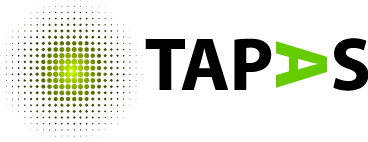biography
SHORT BIOSKETCH
I received the B.S. degree in Electronics Engineering from University of Antioquia (Medellin, Colombia) in 2013, and the MSc in Telecommunications Engineering at the same institution in 2016. Currently I am a PhD student at University of Antioquia (Colombia) and at Friedrich Alexander University Erlangen-Nuremberg (Germany) in a joint degree program. I have performed research and development (R&D) activities related to machine learning and speech processing since five years now, both in academic and industrial partners, including Telefónica research or Johns Hopkins University.
Additional Information
Research Interest
Speech Processing, Machine Learning, Deep learning, Natural Language processing, Multimodal Interfaces, Mobile ComputingPublications
Google scholar
https://scholar.google.es/citations?user=bgWhMokAAAAJ&hl=es
Recent Publications1. Alice Rueda, Juan Camilo Vásquez-Correa, Cristian David Rios-Urrego, Juan Rafael Orozco-Arroyave, Sridhar Krishnan, Elmar Nöth (2019). Feature Representation of Pathophysiology of Parkinsonian Dysarthria. Twentieth Annual Conference of the International Speech Communication Association. [PDF]
2. Paula Andrea Pérez-Toro, Juan Camilo Vásquez-Correa, Martin Strauss, Juan Rafael Orozco-Arroyave, Elmar Nöth (2019). Natural Language Analysis to Detect Parkinson's Disease. International Conference on Text, Speech, and Dialogue. [PDF]
3. Philipp Klumpp, Juan Camilo Vásquez-Correa, Tino Haderlein, Elmar Nöth (2019). Feature Space Visualization with Spatial Similarity Maps for Pathological Speech Data. Twentieth Annual Conference of the International Speech Communication Association. [PDF]
4. Juan Camilo Vásquez-Correa, Philipp Klumpp, others (2019). Phonet: A Tool Based on Gated Recurrent Neural Networks to Extract Phonological Posteriors from Speech. Twentieth Annual Conference of the International Speech Communication Association. [PDF]
5. Nina Hosseini-Kivanani, Juan Camilo Vásquez-Correa, Manfred Stede, Elmar Nöth (2019). Automated Cross-language Intelligibility Analysis of Parkinson’s Disease Patients Using Speech Recognition Technologies. Proceedings of the 57th Conference of the Association for Computational Linguistics (ACL): Student Research Workshop. [PDF]
6. Cristian David Rios-Urrego, Juan Camilo Vásquez-Correa, Jesus Francisco Vargas-Bonilla, Elmar Nöth, Francisco Lopera, Juan Rafael Orozco-Arroyave (2019). Analysis and evaluation of handwriting in patients with Parkinson’s disease using kinematic, geometrical, and non-linear features. Computer methods and programs in biomedicine. [PDF]
7.Juan Camilo Vásquez-Correa, Tomás Arias-Vergara, Philipp Klumpp, Martin Strauss, others (2019). Apkinson: A Mobile Solution for Multimodal Assessment of Patients with Parkinson's Disease. Twentieth Annual Conference of the International Speech Communication Association. [PDF]8. Paula Andrea Pérez-Toro, Juan Camilo Vásquez-Correa, Tomas Arias-Vergara, Nicanor Garcia-Ospina, Juan Rafael Orozco-Arroyave, Elmar Nöth (2018). A Non-linear Dynamics Approach to Classify Gait Signals of Patients with Parkinson’s Disease. Workshop on Engineering Applications. [PDF]
9. Juan Camilo Vásquez-Correa, Tomás Arias-Vergara, Juan Rafael Orozco-Arroyave, Elmar Nöth (2018). A Multitask Learning Approach to Assess the Dysarthria Severity in Patients with Parkinson's Disease. Nineteenth Annual Conference of the International Speech Communication Association. [PDF]10. Luis Felipe Parra-Gallego, Tomás Arias-Vergara, Juan Camilo Vásquez-Correa, Nicanor Garcia-Ospina, Juan Rafael Orozco-Arroyave, Elmar Nöth (2018). Automatic Intelligibility Assessment of Parkinson's Disease with Diadochokinetic Exercises. Workshop on Engineering Applications. [PDF]
11. Nicanor Garcia, Juan Camilo-Vásquez Correa, Juan Rafael Orozco-Arroyave, Elmar Nöth (2018). Multimodal I-vectors to Detect and Evaluate Parkinson's Disease. Proc. Interspeech 2018. [PDF]
12. Juan Camilo Vasquez-Correa, Tomas Arias-Vergara, Juan Rafael Orozco-Arroyave, Björn Eskofier, Jochen Klucken, Elmar Nöth (2018). Multimodal assessment of Parkinson's disease: a deep learning approach. IEEE journal of biomedical and health informatics. [PDF]
13. Juan Rafael Orozco-Arroyave, Juan Camilo Vásquez-Correa, Jesús Francisco Vargas-Bonilla, Raman Arora, Najim Dehak, Phani S Nidadavolu, Heidi Christensen, Frank Rudzicz, Maria Yancheva, H Chinaei, others (2018). NeuroSpeech: An open-source software for Parkinson's speech analysis. Digital Signal Processing. [PDF]
14. Nicanor Garcia-Ospina, Tomas Arias-Vergara, Juan Camilo Vásquez-Correa, Juan Rafael Orozco-Arroyave, Milos Cernak, Elmar Nöth (2018). Phonological i-Vectors to Detect Parkinson's Disease. International Conference on Text, Speech, and Dialogue. [PDF]
15. Tomas Arias-Vergara, Juan Camilo Vásquez-Correa, Juan Rafael Orozco-Arroyave, Elmar Nöth (2018). Speaker models for monitoring Parkinson’s disease progression considering different communication channels and acoustic conditions. Speech Communication. [PDF]16. Juan Camilo Vásquez-Correa, Juan Rafael Orozco-Arroyave, Tobias Bocklet, Elmar Nöth (2018). Towards an automatic evaluation of the dysarthria level of patients with Parkinson's disease. Journal of communication disorders. [PDF]
17. Tomas Arias-Vergara, Juan Camilo Vasquez-Correa, Juan Rafael Orozco-Arroyave, Philipp Klumpp, Elmar Nöth (2018). Unobtrusive Monitoring of Speech Impairments of Parkinson's Disease Patients Through Mobile Devices. 2018 IEEE International Conference on Acoustics, Speech and Signal Processing (ICASSP). [PDF]
Software
Apkinson: A Mobile Solution for Multimodal Assessment of Patients with Parkinson’s DiseasePhonet: a Keras Python Tool Based on Gated Recurrent Neural Networks to Extract Phonological Posteriors from Speech
